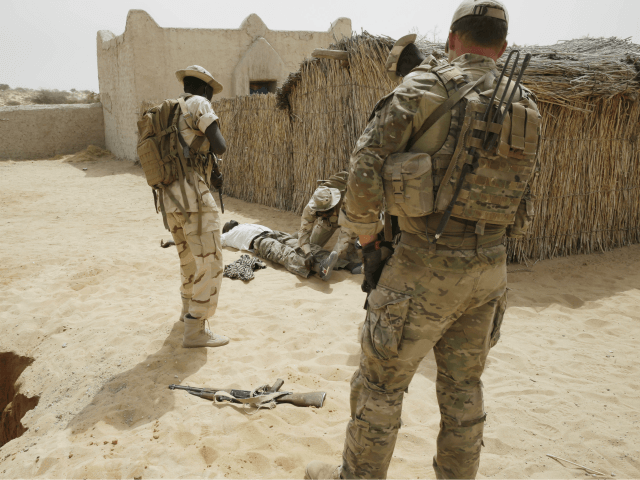The U.S. Military in Africa has taken additional measures to increase security for troops working across the continent amid fears of violent ambushes, the head of the U.S. Africa Command announced on Monday.
Gen. Thomas D. Waldhauser said in a press conference that authorities would provide armed drones and armored vehicles and would take greater care over where soldiers go in the wake of the ambush in Niger last year that killed four U.S. soldiers and four Nigeriens.
“Since that happened, there were significant things to change and learn,” Waldhauser said. “We’ve done a thorough scrub really on every level, whether it’s at a tactical level … or how we conduct business at AFRICOM.”
Waldhauser confirmed that a report will be published in mid-August with recommendations as to how the military should prepare for such incidents. A report published in May blamed the ambush on the Islamic State. Officials now hope to safeguard against such attacks in the future.
Last year, the U.S. expanded its military presence across Niger and other neighboring countries as part of its counter-terrorism strategy that included an additional contribution of $60 million to the recently constituted “G5 Sahel” counter-terrorism force led by led by France and containing 5,000 troops from five Chad, Niger, Burkina Faso, Mali, and Mauritania.
Furthermore, the Nigerien government eventually approved the use of armed U.S. drones over the country’s airspace, meaning they can target militants and protect American forces. They previously only allowed non-armed drones for intelligence, surveillance, and reconnaissance. The U.S. currently has the authority to carry out drone strikes in Libya and Somalia, although some groups have accused the military of killing civilians.
“The majority, if not all of the combat operations, will be conducted by the partner force, not by the United States. So our whole goal is to get them up to a level that they can deal with the challenges that they face,” he said. “In no case are we trying to take the lead. In no case do we want to own the problem, really in all cases and various methods, whether it be kinetic strikes in places like Somalia or working bilaterally with G5 countries in the west.”
Follow Ben Kew on Facebook, Twitter at @ben_kew, or email him at bkew@breitbart.com.

COMMENTS
Please let us know if you're having issues with commenting.